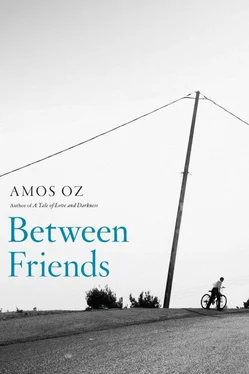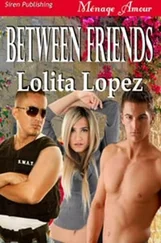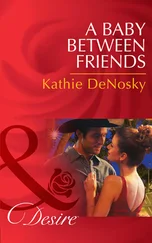SIXTEEN-YEAR-OLD MOSHE YASHAR, tall, thin, sad, and bespectacled, went to see his teacher David Dagan at the ten o’clock break and asked his permission to visit his father when school was over and he’d finished work. He planned to stay overnight with relatives in Or Yehuda and get up at four thirty the next morning to catch the first bus back to the kibbutz so he could be there before school began.
David Dagan patted the boy’s shoulder and said warmly, “These visits to your relatives pull you away from us. And you’re almost one of us now.”
Moshe said, “He’s my father.”
David Dagan pondered this for a moment, nodded twice as if agreeing with himself, and asked, “So tell me, have you learned to swim yet?”
The boy, gazing down at his sandals, said that he could swim a little. His teacher said, “And stop cutting your hair so short. With that stubble on your head, you look like a refugee. It’s time you had a decent head of hair like all the other boys.”
After a brief hesitation, he added affectionately, “All right, go. But only if you come back tomorrow before the first lesson. And while you’re there, don’t forget that you’re one of us now.”
Moshe Yashar was a boarder at our kibbutz. He was brought to us by a welfare worker: his mother died when he was seven and when his father fell ill, his Uncle Sami from Givat Olga took in the children. Several years later, when his uncle also became ill, the Welfare Office decided to split the children up and send them to various kibbutzim to live and attend school. Moshe came to Kibbutz Yekhat at the beginning of the school year wearing a plain white shirt without pockets, buttoned all the way up to the neck, and a black beret. He quickly learned to walk around barefoot and dress as we did, in shorts and singlet. We signed him up for the art club and the current events group, and because he was tall and agile, he also found his way to the basketball court. But there was always something of the outsider about him: when we went on nocturnal forays to the food storeroom to scavenge treats for a sumptuous midnight feast, he never came with us. After school, when we all went to work and then to our parents’ houses for the evening, Moshe remained alone in his room, doing homework, or went to the clubhouse where, with his glasses sliding down his nose, he would read all the newspapers from beginning to end. And when we lay on the grass at night and sang nostalgic songs under the stars, he was the only one who didn’t put his head on the lap of one of the girls. At first we called him an alien and made fun of his shyness, but a few weeks after his arrival, we stopped teasing him about his foreignness, which was of a quiet, restrained kind. If someone offended him, Moshe Yashar would look the offender right in the eye. Sometimes he would say in a calm voice, “You’re insulting me.” But he bore no grudges and was always ready to help with any kind of work: carrying, moving, hanging things. He was even willing to help those who’d hurt his feelings, if they asked. After a few months, the “alien” appellation fell away and the girls began to call him Moshik. There was a unique gentleness in the way he behaved toward the girls, a gentleness in direct contrast to our gruff banter. Moshe spoke to the girls as if there were something marvelous about the mere fact that they were girls.
The school day began at seven in the morning and ended at one, when we had lunch in the school dining room, then went to change into our work clothes. From two until four every day, we worked in the various branches of the kibbutz. Moshe worked in the chicken coop and, unlike many of us, never asked for a different job. He quickly learned to spread feed in the troughs, collect eggs from the shelves that ran the length of the hens’ wire cages and arrange them in rows in cartons, set the thermostat in the brooder house, and feed the chicks, and he even injected the hens with vaccines. The old-timers who worked in the coop, Shraga Shetchopek and Cheska Honig, were very pleased with him. He was fast and hard-working, quiet and thorough, and he never broke an egg or forgot to spread clean sawdust in the brooder houses where the newly hatched chicks were kept, was never late, and never took a sick day or stayed away for any other reason.
David Dagan said to Rivka Rikover, another teacher, “I let him go to visit his family from after work today till the first lesson tomorrow. Though I’m not completely happy about this trip.”
Rivka said, “We have to encourage him to break off contact with them. They pull him back.”
David said, “When we came to this country, we simply left our parents behind. We cut them out of our lives with a single stroke and that was that.”
Rivka said, “That boy has excellent qualities: he’s quiet, hard-working, and he gets on with people.”
David said, “On the whole, I have a very optimistic view of the Sephardim. We’ll have to invest a great deal in them, but the investment will pay off. In another generation or two, they’ll be just like us.”
After David Dagan gave him permission to go, Moshe hurried to the room he shared with Tamir and Dror. By the end of the ten o’clock break, he had finished packing his small bag with underwear, socks, a spare shirt, his toothbrush and toothpaste, a copy of The Plague by Albert Camus, and his old black beret, which he kept hidden under a pile of clothes in the left compartment of the wardrobe under Tamir’s.
After break, they had a history lesson. David Dagan, their teacher, gave a lecture on the French Revolution, dwelling on Karl Marx’s view of it: as a foreshadowing and early stage of the necessary and inevitable historical revolutions that would culminate in a classless society. Gideon, Lilah, and Carmela raised their hands and asked questions that David Dagan answered firmly and at length: “Just give me a minute,” he said, “so we can set things straight.”
Moshe cleaned his glasses and wrote everything down in his notebook — he was a conscientious student — but refrained from asking questions. Some weeks earlier, he’d read several chapters of Das Kapital in the school library and he didn’t like Karl Marx: he felt that there could have been an exclamation mark after almost every sentence, and that put him off. Marx claimed, so it seemed to Moshe, that economic, social, and historical laws were as clear and immutable as the laws of nature. And Moshe had his doubts even about the immutability of the laws of nature.
When Lilah remarked that in order to have progress, there have to be victims, David Dagan agreed with her and added that history is by no means a garden party. Bloodshed repelled Moshe and garden parties did not particularly appeal to him either. Not that he’d ever been to a garden party, but neither did he think he’d ever want to attend one. He spent his free time reading in the empty library when his classmates were with their parents. Among the books he read was a translated World War II story of escape and survival in the frozen north, entitled We Die Alone by David Howarth. His reading was leading him to the simple conclusion that most people need more affection than they can find. These were the thoughts that filled his mind during the lesson on the French Revolution. After history class, two lessons remained, trigonometry and agriculture, and when they were over, we all dashed out of class straight to our rooms to put on our work clothes and race off to the dining room for a quick lunch.
Lunch consisted of spinach patties with mashed potatoes, sour pickles, and cooked carrots. We were hungry, so we also wolfed down bread and asked for more mashed potatoes. There was a large tin jug of cold water on every table, and we each drank two or three glasses because of the heat. Flies buzzed around our heads and large, dusty ceiling fans whirred above us. Dessert was stewed fruit. When we finished eating, we took our dishes and silverware to the hatch that opened into the dishwashing room and went off to our jobs: Tamir to the garage, Dror to the fodder fields, Carmela to the children’s house, and Lilah to the laundry.
Читать дальше












